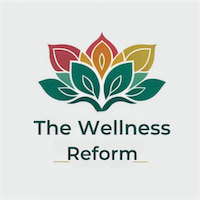Are you feeling stuck in life? Do you feel like you need to live to your fullest potential? It’s time to harness your spiritual wellness and learn to heal from within. In this blog post, we’ll explore the power of spiritual health and how it can help you become the best version of yourself.
What is Spiritual Wellness?
Spiritual wellness is connecting with your inner self and discovering your purpose and values. It is a holistic approach to healing and self-care that encompasses our lives’ physical, mental, and spiritual aspects. It is a journey of self-discovery and understanding and can be a source of strength, peace, and resilience.
The Benefits of Spiritual Wellness
When we connect with our spiritual selves, we can better understand our purpose and values. Our lives can be improved by making more meaningful choices and decisions. It can also help us to manage stress and anxiety better and to foster a sense of connection and belonging. Additionally, spiritual wellness can provide us with a sense of peace and contentment, and it can open us up to new perspectives and experiences.
How to Harness Your Spiritual Wellness
One of the best ways to begin harnessing your spiritual wellness is to enjoy activities that calm your mind and bring you joy. The activities can range from yoga and meditation to journaling and creative pursuits. Spending time in nature, practicing gratitude, and connecting with others can also be beneficial.
It is also essential to explore one’s spiritual beliefs and values. Among the options are reading books about spirituality, attending spiritual retreats, and joining spiritual communities. Additionally, exploring different spiritual practices such as prayer, mindfulness, or mindfulness-based stress reduction can be helpful.
Finally, it is essential to remember that spiritual wellness is an ongoing journey. It is important to be patient and to practice self-compassion.
Also, a willingness to take risks and explore new ideas is essential, as is an openness to learning. As one continues the spiritual wellness journey, it is invaluable for personal growth and healing.
Conclusion
Harnessing your spiritual wellness can be a robust personal growth and healing tool. It can help us to gain a greater understanding of our purpose and values and to manage stress and anxiety. It can also provide peace and contentment and open to new perspectives and experiences. To harness one’s spiritual wellness, take time, explore spiritual beliefs and values, and practice self-compassion.
Imbibe practicing patience and practicing self-healing will help you learn the skill.



